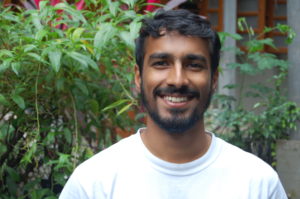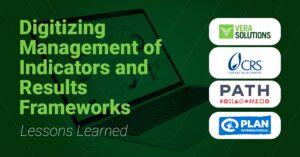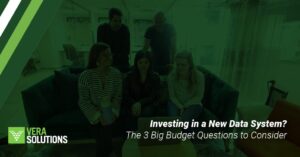Vivaan Misra, a 2014 Fellow based in Mumbai, describes the experiences that led him to Vera. Vivaan grew up in New Delhi and graduated in 2012 from Carleton College, where he studied Economics and International Relations. Before joining Vera, he worked in public health in northern India and at a research firm in South Sudan.

After experiencing first-hand a frustrating inability to access crucial data in real time earlier in my career, I joined Vera to build applications that offer organizations across the development sector better insight into their work.
Straight out of college, I started working on a public health program focused on improving hygiene in northern India. While almost every component of the program was designed and managed internally, intervention leaders decided to outsource monitoring and evaluation to prevent biases associated with self-reporting.
This arrangement’s flaws quickly became apparent. It made sense for an external entity to evaluate the intervention, but conducting day-to-day monitoring externally made it hard to assess, adjust, and improve programs. For example, when I attempted to understand the impact of our communication material, I learned that monitoring results wouldn’t be available for two months. If I wanted to access the raw data myself, I would first have to mine it from an impossibly large stack of surveys. I was stuck without any ability to experiment and iterate.
In contrast, during internships at corporate consulting firms, I witnessed leaders make every decision with end goals in mind, relying heavily on both internally and externally collected data. In North India, our inability to access program data prevented us from stepping back from day-to-day project administration to determine whether specific elements of the intervention worked. This would never happen in a corporate context.

For most development organizations, survival requires continued financial support, which depends on donor satisfaction. Misguided incentive structures push many development organizations to use program data to generate donor support rather than to understand, modify, and improve their programs. Organizations with monitoring baked into their processes, however, have an advantage when it comes to self-improvement. When I first heard about Vera’s work, what struck me most was the dedication to removing barriers to organizations being able to understand themselves. The applications Vera builds allow stakeholders to share insights across all levels – program managers, organization leadership, and, yes, donors.
As a Fellow, I work to help major development organizations create real time, accessible feedback systems – exactly what we needed but lacked at my job in North India. Looking ahead to the next six months, I’m most energized about learning more, with each new project, about how to put our partner organizations on paths toward self-reflection and self-improvement.
To learn more about the Vera Fellowship Program, check out this interview with 2014 Fellow Katie McCloskey and 2013 Fellow Jill Shah’s reflections on her experiences.
Applications for the 2015-2016 Fellowship Program are open until March 1. Please email [email protected] with questions.



